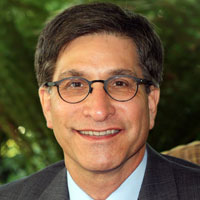Last week, 30-year-old rapper Lil Wayne was hospitalized after suffering seizures. While details are still unconfirmed, it is suspected that his condition resulted from an overdose of a drug called “sizzurp.”
Addiction psychiatrist and CEO of Promises Treatment Centers Dr. David Sack recently appeared on Fox News to discuss sizzurp.
“It’s a combination of codeine and promethazine, which is a cough syrup that’s commonly prescribed for pneumonia or bronchitis,” he explained. “In this particular twist, it’s often combined with clear soda like 7-Up or very often vodka or other clear liquor.”
Also called syrup, Texas tea, purple drank and lean, sizzurp may also be mixed with hard candies like Jolly Ranchers and is typically sipped out of a Styrofoam cup. When the syrup is used other than as prescribed, it is illegal.
The Dangers of Prescription Cough Syrup Abuse
When used as directed, usually for a couple days in small doses, prescription cough syrup is fairly safe. But sizzurp users treat the drug not as a medicine but a drink, used recreationally for multi-day binges. Used in high doses, sometimes up to 25 times the dose typically prescribed to ease pain or cough, the codeine and promethazine in the cough syrup produce a sleepy euphoria. The effects are amplified, as are the dangers, when users mix in alcohol or other prescription drugs.
Codeine is in the class of drugs called opiates. Like other drugs in this class, such as heroin and morphine, it can be highly addictive. As a respiratory depressant, codeine can cause users to stop breathing if taken in high doses.
Although opiate withdrawal doesn’t usually result in seizures, sizzurp is often combined with alcohol and other drugs such as benzodiazepines (a combination sometimes called “pancakes and syrup”). Mixing drugs can turn a mild high into one that rivals heroin in terms of intensity and addictive potential, and can produce severe withdrawal symptoms including seizures. In addition, promethazine, an antihistamine with mild sedative effects, can make users who are prone to seizures more likely to have them.
Lil Wayne Sizzurp Binge a Cautionary Tale, Dr. Sack Tells Fox News
Because cough syrup can be legally prescribed by a physician, there is less awareness of the dangers and less stigma surrounding its use. In fact, Lil Wayne has publicly professed his fondness for sizzurp, regularly appearing for interviews with a Styrofoam cup in hand and rapping about the syrup in his 2008 track “Me and My Drank.”
Pleas for Treatment Ignored
A week after being hospitalized, Lil Wayne is recovering from the incident, tweeting, “I’m good everybody. Thx for the prayers and love.” But family and friends are still concerned. People close to Lil Wayne have pleaded with him to go to rehab, particularly in the wake of rap idol Pimp C’s death from an overdose of syrup in 2007 and suspected syrup-related deaths of two other rappers. To date, he has resisted getting help.
In part, this is because there are a number of hurdles on the path to recovery. Opiate withdrawal symptoms are comparable to a bad flu – shivering, vomiting, diarrhea, muscle and joint pain, insomnia – but worse, users report. Lil Wayne himself told MTV that quitting the syrup “feels like death in your stomach when you stop.” He said, “Everybody wants me to stop all this and all that. It ain’t that easy.” Withdrawal typically lasts a few days to a week and can be eased with medication, but it is just the first step in a longer process.
Because Lil Wayne’s “brand” has become synonymous with drug use, in some ways he would need to redefine himself as an artist. Like high-functioning CEOs and professionals, his success as a rapper convinces him that any problem he has can’t be that serious. As he explained to MTV, “I feel like everything I do is successful and productive. It’s gonna be hard to tell me I’m slipping.”
The obstacles to recovery are not insurmountable. Others have done it successfully, and loved ones and fans hold out hope that Lil Wayne’s recent hospitalization will be the impetus for him to finally seek help.
Role Models for Addiction Endanger Teens
With origins in the 1990s underground hip-hop scene in Texas, sizzurp is known as a drug of choice among some rappers and celebrities, professional athletes and residents of certain inner-city communities. But its popularity is also exploding with a very different group: teenagers.
Teenagers are at heightened risk of both prescription and over-the-counter cough syrup abuse. It is cheap and easy to make, and it isn’t on parents’ radar in the same way as heroin and other street drugs. According to the National Institute on Drug Abuse, prescription and over-the-counter medications are the most commonly abused drugs among high school seniors next to marijuana. If teens can’t get a prescription, they may ingest large amounts of over-the-counter cough medications containing dextromethorphan (DXM), such as NyQuil and Robitussin.
When celebrities sing the praises of a drug, young people take notice. Parents, many of whom are far removed from rap culture and drug trends, don’t always know what to look for. Here are a few symptoms of cough syrup abuse:
- Frequent complaints of cough or cold symptoms
- Empty medicine bottles or packages
- Impaired coordination
- Slurred speech
- Blurred vision
- Drowsiness or fatigue
- Dissociation from one’s body
- Vomiting
- Fainting
- Tremors
- Hallucinations
Teens who are abusing cough syrup or other drugs may have mood swings, declining school performance or attendance, or a change in friends, sleeping or eating habits or appearance. Because of the serious risks and potential for addiction, cough syrup should be stored in a locked medicine cabinet, out of reach of curious teens.








